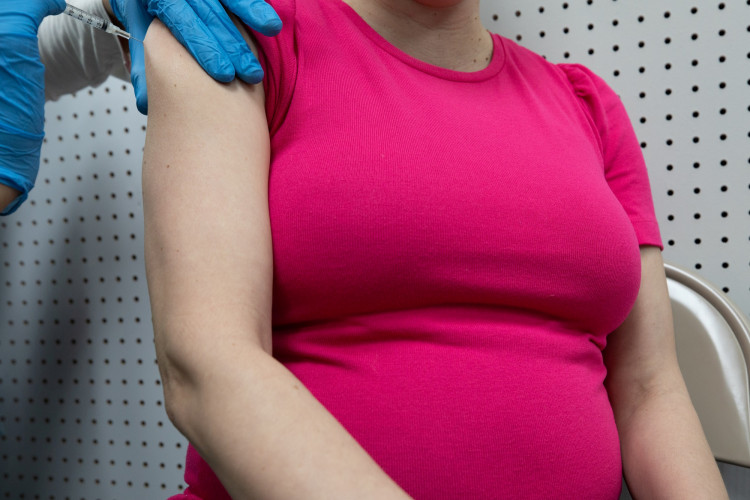New data shows promising and significant results for couples attempting to conceive. According to a new study, COVID-19 vaccination has no impact on the likelihood of becoming pregnant.
The study, which was funded by the National Institutes of Health and published on Thursday in the American Journal of Epidemiology, followed over 2,100 women and some of their partners in the U.S. and Canada for almost a year, finishing in November 2021.
According to the study's authors, they contacted participants - adult women up to 45 years old who are attempting to conceive without using fertility treatments - and many of their partners every eight weeks for a year.
In comparison to unvaccinated participants, a statistical examination of data collected from the participants indicated "no meaningful association" between couples who reported COVID-19 vaccination and the likelihood of being able to conceive.
According to the researchers, this was true across a variety of other criteria, including vaccine brand and time of year.
It concluded that getting vaccinated against COVID had no discernible influence on fertility rates in men or women, adding to a growing body of evidence about the vaccine's safety.
The researchers also discovered that males who tested positive for COVID within 60 days of their partner's menstrual cycle were 18% less likely to conceive during that cycle than men who did not test positive.
"There's not necessarily any harm in trying to conceive shortly after having Covid, but it may just take a bit longer," Amelia Wesselink, a study co-author and research assistant professor of epidemiology at the Boston University School of Public Health, told CNBC Make it.
According to Wesselink, the findings demonstrated that Covid infections have no long-term consequences on male fertility or female fertility.
More study is needed to figure out why male fertility declines following infection with Covid. Fever is a typical Covid symptom, and fevers are known to temporarily lower sperm count and motility, according to the National Institutes of Health.
For months, public health experts have advised couples to get vaccinated, emphasizing the serious risks that COVID-19 poses to women who contract the virus while pregnant.
Scientists have cautioned that the virus could raise the chance of stillbirth. Inflammation was also found in children who were carried by infected moms, according to a recent NIH study published in Nature, which could "lead to long-term morbidities."
COVID-19 immunization rates among pregnant or trying to become pregnant women have improved in recent months, which has long been a source of concern for health officials. CDC survey data indicates their vaccination rates are now more closely aligned with those of other young adults.






